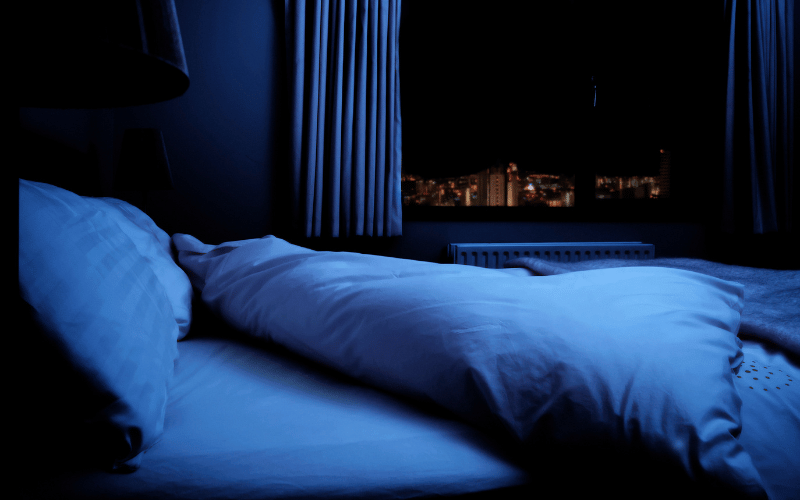10. Create a Sleep Sanctuary: The Bedroom Environment Matters

Last but not least, your physical environment plays a crucial role in the quality of your sleep and can directly influence bruxism. Imagine trying to relax in a room that’s too hot, too cold, or cluttered with distractions.
Start by optimizing your bedroom temperature. Research suggests that a cooler room improves the quality of REM sleep. This, in turn, can help your muscles relax, reducing the risk of nighttime grinding.
Next, consider the bedding material. Organic, hypoallergenic materials are preferable as they are less likely to irritate your skin or respiratory system, leading to a more restful sleep. Some even argue that the use of weighted blankets can mimic a “hugging” sensation that calms the nervous system.
Lighting is another factor that can make or break your sleep sanctuary. Dimming the lights an hour before bed can signal to your body that it’s time to wind down. Some people even opt for specialized smart lighting systems that gradually dim to replicate a sunset.(10)